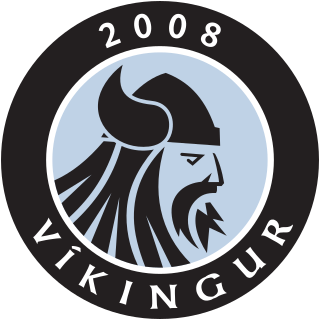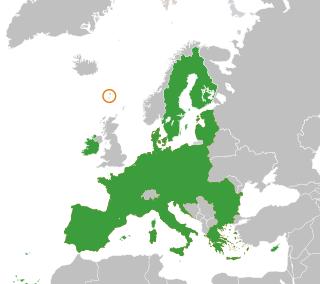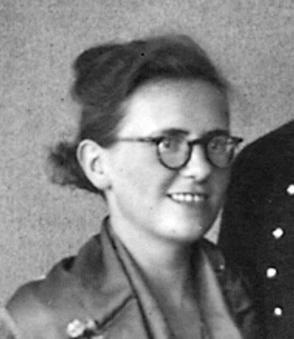
The Løgting is the unicameral parliament of the Faroe Islands, an autonomous territory within the Danish Realm.

Iceland is heavily integrated into the European Union via the Agreement on the European Economic Area and the Schengen Agreement, despite its status as a non-EU member state. Iceland applied for membership in 2009 but the application was controversial and the Minister of Foreign Affairs sent a letter in 2015 ending the application process.

Hvannasund is a village and municipality in the Faroe Islands, an autonomous region in Denmark.

Kringvarp Føroya (KvF) is the national public broadcasting company of the Faroe Islands. It was founded on 1 January 2005 after a merger of the national radio and television networks, Útvarp Føroya and Sjónvarp Føroya.

The cinema of the Faroe Islands does not have a long history.

Lesbian, gay, bisexual, and transgender (LGBT) rights in the Faroe Islands are relatively similar to that of Denmark. The progress of LGBT rights has been slower, however. While same-sex sexual activity has been legal in the Faroe Islands since the 1930s, same-sex couples never had a right to a registered partnership. In April 2016, the Løgting passed legislation legalizing civil same-sex marriage on the Faroes, recognizing same-sex marriages established in Denmark and abroad and allowing same-sex adoption. This was ratified by the Folketing in April 2017. The law went into effect on 1 July 2017.

An independence referendum was held in the Faroe Islands, an autonomous territory of Denmark, on 14 September 1946. Although a narrow majority of valid votes were cast in favour of the proposal (50.7%), the number of invalid votes exceeded the winning margin. Although independence was declared by the Speaker of the Løgting on 18 September 1946, the declaration was not recognised by Denmark. Danish King Christian X dissolved the Løgting and called fresh elections, which were won by unionist parties. The islands were subsequently given a greater level of self-rule.
Uni Jógvanson Arge is a Faroese journalist, writer, musician, singer and a former international football striker.

The Danish Realm, officially the Kingdom of Denmark, is a sovereign state located in Northern Europe and Northern North America. It consists of metropolitan Denmark—the kingdom's territory in continental Europe and sometimes called "Denmark proper" —and the realm's two autonomous regions: the Faroe Islands and Greenland. The relationship between the three parts of the Kingdom is also known as The unity of the Realm.

Víkingur is a semi-professional football club in the Faroe Islands. The club was founded in 2008 after the merger of GÍ Gøta and Leirvík ÍF. The club is based in Leirvík, while the stadium is in Norðragøta. Both villages are part of the same municipality Eysturkommuna, located on the island of Eysturoy and about 5 kilometers away from each other. The club won the Faroese championship for the first time in the 2016 season. In the 2017 season, Vikingur won the championship again.
Same-sex marriage in the Faroe Islands has been legal since 1 July 2017. Legislation allowing same-sex marriage and adoption by same-sex couples was approved by the Løgting on 29 April 2016. The Danish Parliament approved the necessary legislative adaptations on 25 April 2017, and the law received royal assent on 3 May and went into effect on 1 July 2017.

The Faroe Islands, or simply the Faroes, are a North Atlantic island group and an autonomous territory of the Kingdom of Denmark.

The Faroe Islands, a self-governing nation within the Kingdom of Denmark, is not part of the EU, as explicitly asserted by both Rome treaties.

Høgni Reistrup is a Faroese singer, musician, writer and scientist from Tórshavn, Faroe Islands. He is the co-writer of the book Exit Føroyar ; he wrote it together with Heri á Rógvi. The books was published in 2012 and created a major debate in the Faroe Islands and in Denmark about the problems the Faroe Islands were facing with population decline in the islands, where the biggest problems seemed to be that half of the young people who moved away to study abroad never moved back again; especially the women did not move back again. After a period of six years with negative net migration in the Faroe Islands, the country saw an increase in the population in 2014 and 2015.

The Eysturoyartunnilin is a large undersea road tunnel under the Tangafjørður sound in the Faroe Islands, connecting the island of Streymoy to the island of Eysturoy. It also crosses the southern part of Skálafjørður, and connects the towns of Runavík on the eastern side and Strendur on the western side of the fjord, and includes the world's first undersea roundabout in the middle of the network.

Hanna Jensen is a Faroese high school teacher and a liberal politician (Progress).

Sigrið av Skarði Joensen, also Sigrið av Skarði, was a Faroese journalist, teacher, and feminist.
Niels Christoffer Winther Poulsen was a Faroese teacher and politician for the Home Rule Party.

Jógvan Poulsen was a Faroese teacher and writer, and a politician for the Union Party.
The COVID-19 pandemic was confirmed to have reached the Faroe Islands, an autonomous territory of Denmark, in March 2020. The confirmed infection rate was 1 case per 280 inhabitants, one of the highest rates in the world, but the archipelago also tested at a very high frequency, with the number of tests equaling c. 34 per cent of the population. As of 28 February 2022, there have been 34648 confirmed cases. Among these, 31 persons have died with COVID-19.
















